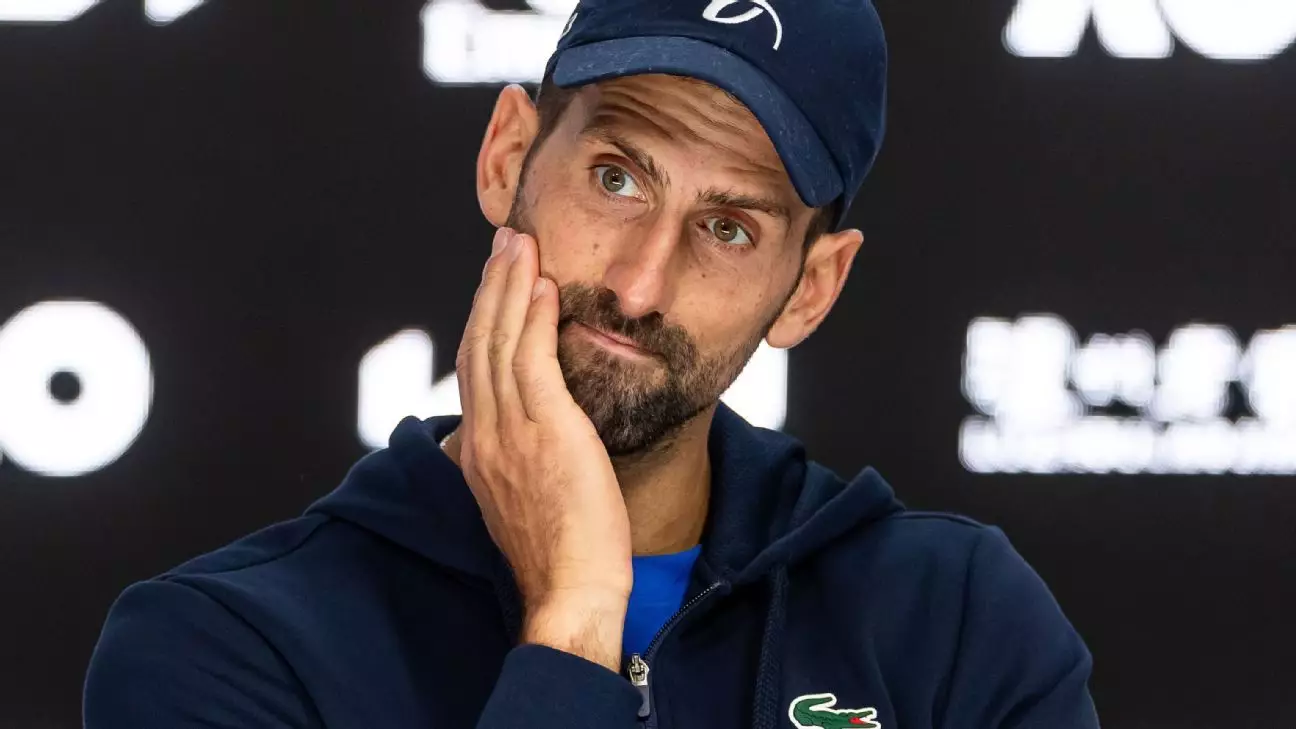In a recent press conference at the Miami Open, Novak Djokovic took center stage, not just as a tennis icon but as a catalyst for change in the sport’s governance. The antitrust lawsuit brought by the Professional Tennis Players‘ Association (PTPA) shines a light on longstanding grievances regarding the distribution of revenue within professional tennis. The suit contends that both the men’s and women’s tours, along with the International Tennis Federation and the sport’s integrity agency, maintain a „cartel“ that monopolizes player pay and conditions, a bold assertion that calls for immediate attention.
Djokovic’s decision to sidestep direct involvement as a plaintiff might raise eyebrows, but he articulately expressed a viewpoint that transcends individual disagreements. His intention to allow other players to take the reins in this critical issue suggests a desire for collective empowerment rather than a self-serving agenda. He sees the lawsuit as a necessary, albeit imperfect, vehicle for elevating players‘ rights and privileges throughout the sport.
Players’ Voices Matter
One of the most significant aspects of Djokovic’s message is the value of player solidarity. With the PTPA citing conversations with over 250 players, it’s evident that the sentiment for change is widespread. However, not every player is on board; for instance, prominent figures like Carlos Alcaraz have expressed discomfort with the implications of their names being part of a legal action without prior consultation. This highlights an essential gap in communication—a gap that both the PTPA and governing bodies must urgently bridge if they aim to foster a unified front.
Djokovic’s acknowledgment that he aligns with some aspects of the lawsuit while opposing others resonates with the diversity of opinions within professional tennis. This nuanced position reveals that while there is a pressing need for reforms, the path forward isn’t merely linear. Different stakeholders have different experiences and perspectives, which must be integrated into any proposed solutions.
Balance Between Progress and Unity
The crux of Djokovic’s argument is unmistakable: tennis cannot afford to remain divided at a time when solidarity is crucial for progress. His plea for unity among governing bodies and players underscores an important realization: an organized and cooperative approach is necessary to tackle systemic issues. Conflict can easily arise in a competitive environment, but Djokovic’s insistence on collaboration is a keen reminder that long-lasting solutions often require compromise and understanding.
As tennis navigates through this pivotal moment, the role of established stars like Djokovic cannot be overstated. His influence and visibility can galvanize more players to engage in dialogues about their rights and futures. If tennis is to evolve, it must be willing to entertain difficult conversations about equity and representation—topics that Djokovic has bravely surfaced.
The current lawsuit, while challenging, presents an opportunity for tennis to reassess its priorities and values. Player empowerment is not merely a necessary reaction; it is an essential evolution in the sport’s ethos. Djokovic’s role may well be pivotal in leading the charge towards a more equitable future. Through open dialogue and acknowledge of differing viewpoints, tennis can hope to foster a prosperous and inclusive environment for generations to come.


Napsat komentář